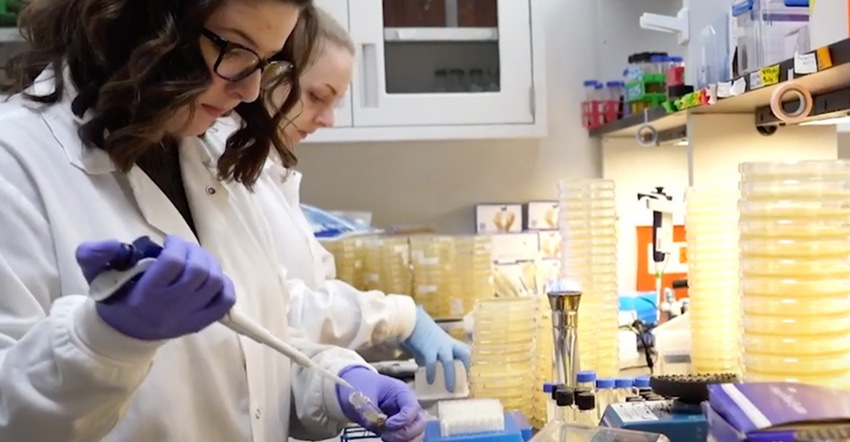Every production environment has unique challenges.
September 2, 2021

Sponsored Content
Waukesha, Wisconsin. It’s probably not the first city that comes to mind when thinking about state-of-the-art laboratory and technical services that benefit animal agriculture.
But every day in this Milwaukee suburb, the work being done at a microbiology lab operated by Arm & Hammer Animal and Food Production is taking the guesswork out of dairy, beef, swine and poultry production. The lab specializes in assessing the uniqueness of each production environment—often referred to as the Microbial Terroir™—and delivering targeted microbial solutions to address the unique challenges faced there.
Microbial Terroir is the embodiment of the local environment (animals, housing, feed, water, weather and more) and its impact on the microbiota that influence the health and performance of the animal. By relying on insights from an operation’s unique assessment, beneficial strains of Bacillus can be identified and formulated into products to combat those challenges.
The lab’s specific work involves testing fecal and feed samples collected in on-farm evaluations to uncover what’s going on within that environment and how best to address it. Working closely with onsite technical services teams to maintain a pulse on production-level challenges, microbiologists develop customized, proprietary solutions, integrating strains as needed as populations or challenges shift.
Since the scientists in the Waukesha microbiology lab can access more than 30,000 Bacillus strains, they can choose the “best of the best” for each environment, closing the gap on what’s happening at the production level.
The Waukesha lab routinely evaluates the efficacy of the proprietary Bacillus strains against the most pressing pathogenic challenges. If strains in a current product offering no longer adequately protect against an evolving challenge, they set out to locate a Bacillus strain better suited to effectively combat it. This advanced, cutting-edge approach to innovation leads to the availability of even more tools.
As part of the service offering, the lab also uses robotics to improve turnaround times, advanced humidity chambers and genome sequencers, and other advanced tools and resources to understand microbiological issues at the deepest possible level. To explain the change he witnessed in nature, a philosopher once said, “You never step into the same river twice.” What that ancient Greek couldn’t have known is the extent to which changing environments would one day be understood by microbiologists armed with state-of-the-art tools.
By taking an integrated approach that combines what’s being developed in the lab with what’s happening in actual production environments, this microbiology lab can deliver solutions that are anything but one-size-fits-all.
About the Author(s)
You May Also Like

.png?width=300&auto=webp&quality=80&disable=upscale)

